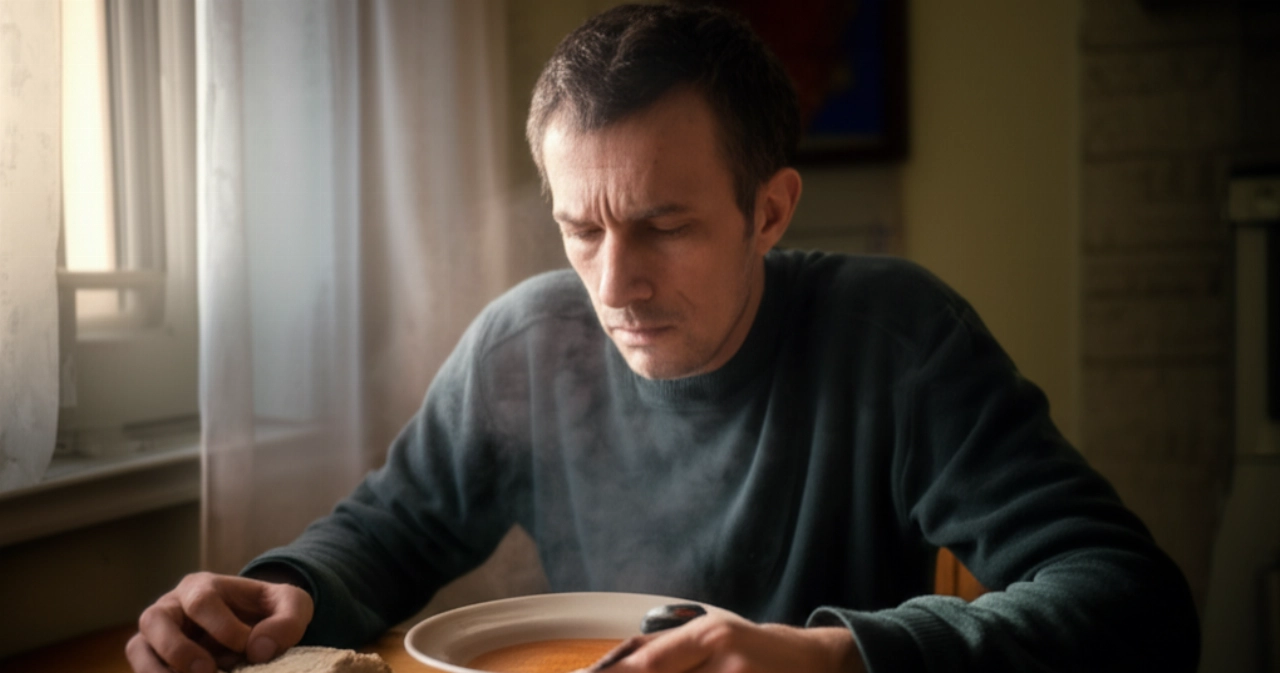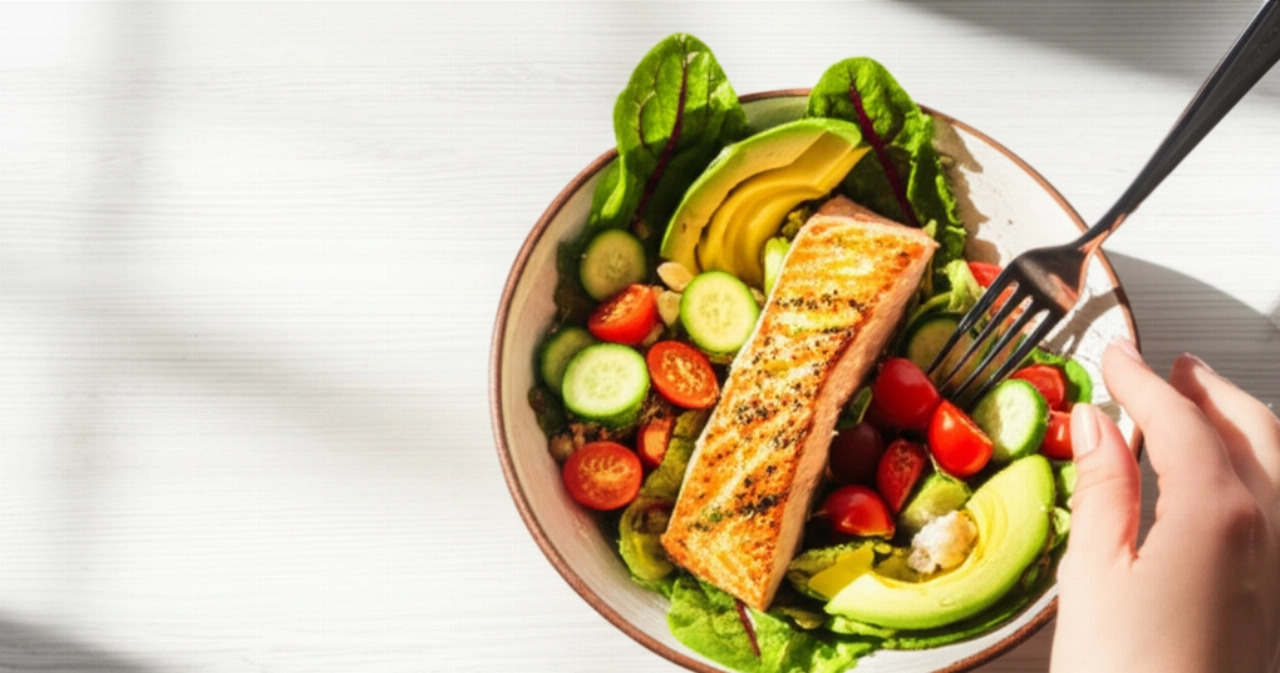Have you ever found yourself in front of the fridge or pantry, not out of physical hunger, but due to an emotion? Stress, boredom, sadness, anxiety... and a moment later, you find yourself with an empty cookie package and a sense of guilt tightening your stomach?
You are not alone. Emotional eating is a labyrinth for many, a frustrating cycle of failed attempts, diets that don't work because they don't address the root of the problem, and the feeling of not having control over your body and your food choices. You've tried everything: restrictive diets that leave you hungry and unsatisfied, contradictory advice that only increases your nutritional confusion, and the yo-yo effect that makes you feel more defeated each time. The scale has become an enemy, and the fear of hunger and deprivation stops you before you even start.
But there is a way out. This page won't give you yet another list of 'yes' and 'no' foods. We will guide you to understand the roots of your emotional eating to free yourself from the emotional food cycle, rediscovering the pleasure of nourishing yourself with awareness and serenity. Here you will find the clarity, experience, and trust you need to transform your relationship with food and, consequently, with yourself.

Beyond Hunger: Understanding Emotional Roots for Lasting Well-being
Emotional eating is not a whim; it's a signal. Your body and mind are communicating something beyond the simple need for nourishment. Often, behind that uncontrollable craving for food, complex emotions are hidden: accumulated stress, anxiety about the future, boredom, sadness, or even the search for comfort you can't find elsewhere.
Understanding this mechanism is the first, fundamental step to regaining control. It's not about having more willpower or following yet another restrictive diet that leaves you hungry and frustrated. It's about learning to listen to yourself, to decipher the signals your body sends you, and to respond to your emotional needs in ways that don't involve food.
When you learn to manage emotional eating, you not only see results on the scale but also experience a profound transformation: more energy, greater confidence in your body, mental serenity, and the freedom to enjoy food without guilt. It's a journey that leads you to complete psychophysical well-being, where food returns to being nourishment and pleasure, not an emotional crutch.

Dietasnella.it's 5 Effective Strategies for Managing Emotional Eating
After understanding the 'why,' it's time to move on to the 'how.' The strategies we propose are not quick fixes, but pillars on which to build a healthy and lasting relationship with food and your emotions. Here are the 5 steps that will guide you out of the vicious cycle of emotional eating:
1. Recognize the Signal: The Emotional-Eating Diary
- The first step is to become a detective of yourself. Before eating, pause for a moment and ask: "Is it physical hunger or emotional hunger?" Keep a small diary where you note not only what you eat, but also the time, place, and most importantly, the emotion you were feeling at that moment. Anger? Sadness? Boredom? Stress? This simple yet powerful exercise will help you identify your triggers and break the autopilot mode.
2. Mindful Nutrition: The Power of Balance
- Often, emotional eating is also triggered by an unbalanced diet. Skipping meals, overly restrictive diets, or an insufficient macronutrient balance (carbohydrates, proteins, fats) can lead to blood sugar spikes and drops that your body interprets as hunger, pushing you towards foods with a high glycemic index. At Dietasnella.it, we teach you how to structure meals that truly satisfy you, keeping your caloric intake stable and providing you with the energy you need. This drastically reduces hunger attacks, both physical and emotional, and supports your metabolism.
3. Manage Stress, Don't Eat It: Relaxation Techniques
- Stress is one of the biggest catalysts for emotional eating. Learning to manage it is fundamental. Dedicate a few minutes each day to practices like mindfulness, deep breathing, meditation, or even just a short walk. These activities not only reduce cortisol levels (the stress hormone that promotes fat accumulation) but also offer you a healthy alternative to food for dealing with daily tensions. It's not a waste of time; it's an investment in your psychophysical well-being.
4. Find Alternatives to Food: Positive Substitutions
- When you feel the urge to eat due to emotion, try to substitute the action. Instead of opening the fridge, make a phone call to a friend, listen to your favorite music, read a book, take a warm shower, go for a short walk, or dedicate yourself to a hobby. The goal is to divert attention from emotional eating and redirect energy towards activities that give you real satisfaction and well-being, without guilt.
5. Don't Underestimate Sleep and Hydration: The Hidden Pillars
- Often underestimated, quality sleep and adequate hydration play a crucial role in managing emotional eating. Sleep deprivation alters hunger hormones (leptin and ghrelin), increasing the desire for caloric foods. Similarly, dehydration can be mistaken for hunger. Make sure to drink enough throughout the day and get 7-8 hours of sleep per night. These simple measures can make a huge difference to your metabolism and appetite control.

The Trap of Quick Fixes: Why "Eating Less" Isn't Enough for Emotional Eating
How many times have you started a diet, promising yourself that this time it would be the right one? And how many times have you found yourself, after initial success, regaining all the lost weight, perhaps with interest (the infamous yo-yo effect)? This happens because most diets focus only on 'what to eat' and 'how much,' completely ignoring 'why you eat that way.'
When emotional eating is at play, a simple caloric restriction is a losing battle from the start. You will constantly feel deprived, hungry, and at the first strong emotion, your body will seek comfort in food, nullifying all your efforts. 'Magic pills' or advice read on forums, often without any scientific basis, not only don't solve the problem but can worsen your relationship with food and your health.
At Dietasnella.it, we know that to overcome emotional eating and achieve lasting weight loss, a holistic approach is essential. It's not just about a meal plan, but a journey that teaches you to manage your emotions, nourish your body in a balanced way, and build healthy habits that last a lifetime. Our authority comes from a deep understanding of these dynamics and the ability to offer you science-based solutions, tailored specifically for you.
Your Personalized Journey: How Dietasnella.it Transforms Emotional Eating into Freedom
You've read the strategies, you've understood the pitfalls of DIY diets, and now you might be asking yourself: 'How can I apply all this to my busy life?' This is where Dietasnella.it comes in.
The difference between a diet and a tailored journey is abyssal. We don't give you a list of foods to follow blindly. We offer you a partner who guides you, step by step, to build a personalized dietary plan that considers not only your nutritional needs (macronutrient balance, ideal caloric intake for your metabolism) but also your lifestyle, your preferences, and, above all, your emotional dynamics related to food.
Our approach is based on the E-E-A-T principles: our Experience comes from years of success with people like you; our Expertise is rooted in the most up-to-date nutritional science; our Authoritativeness is recognized by thousands of satisfied users; and Trustworthiness is the bridge we build with every person who relies on us.
With Dietasnella.it, you will learn to eat with pleasure, without suffering from hunger or feeling deprived. You will discover how to integrate healthy cooking into your routine, even if you have little time. And most importantly, you will learn to manage emotional eating, transforming the fear of the scale into confidence in your body and your ability to achieve your goals. It's not just weight loss; it's well-being, energy, and a new, serene relationship with food.
Frequently Asked Questions about Emotional Eating
Is emotional eating just a matter of willpower?
Absolutely not. Emotional eating is a complex phenomenon, often linked to deep psychological and emotional mechanisms, not a simple lack of willpower. It requires understanding, targeted strategies, and, in many cases, professional support to be managed effectively.
Can I overcome emotional eating on my own?
It's possible, but it can be a long and frustrating journey. Professional support, like that offered by Dietasnella.it, provides you with the tools, guidance, and motivation needed to accelerate the process and face challenges in a more structured and conscious way.
How long does it take to manage emotional eating?
There is no fixed timeline, as it depends on the depth of the emotional roots and the consistency in applying the strategies. However, with a targeted and personalized approach, many people begin to notice significant improvements within a few weeks, gaining greater control and serenity.
Do I have to completely eliminate foods I like to manage emotional eating?
No, quite the opposite. An overly restrictive approach can increase cravings and trigger emotional eating attacks. The goal is to learn to integrate all foods with awareness and moderation, without guilt, and to distinguish physical hunger from emotional hunger.
How is emotional eating connected to weight loss?
Emotional eating is one of the biggest obstacles to lasting weight loss. If not managed, it can sabotage any eating plan, leading to the yo-yo effect and a sense of defeat. Addressing it is therefore a crucial step not only for losing weight but for maintaining it and improving your overall well-being.
You've taken an important step: you've begun to understand emotional eating not as a flaw, but as a signal. You've discovered that you are not alone and that concrete strategies exist to regain control.
Perhaps you think it's too difficult, that you don't have time to dedicate to yourself, or that, after so many failures, you'll never succeed. We understand. But the truth is, your body and mind deserve a different approach, one that doesn't judge you, but guides you.
Stop feeling frustrated and confused. Your body deserves a clear path that leads to real and lasting results. The first step isn't a restrictive diet, but understanding your needs to create a tailored plan for you. It's free, without obligation, and will give you the map to reach your goal. Click here, tell us about yourself, and discover how you can finally free yourself from emotional eating, reach your ideal weight feeling great, and rediscover the pleasure of nourishing yourself with awareness. Start transforming your relationship with food now!
Now that you've discovered how to manage emotional eating, you might be interested in better understanding the role of slow metabolism in weight loss or exploring healthy and quick recipes for stress-free cooking.





